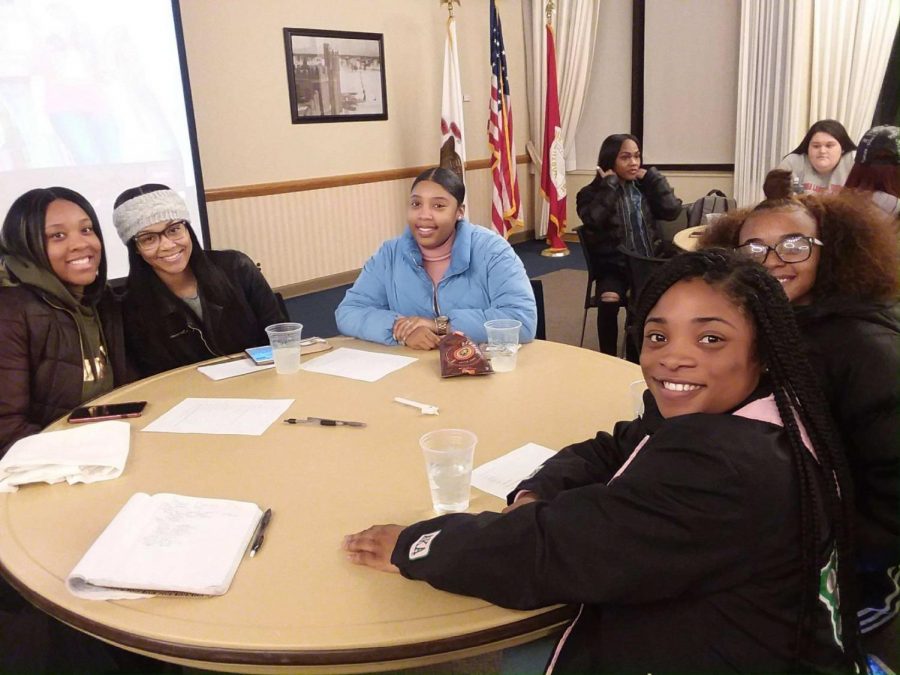SA launches #ProjectOrange to target domestic violence and sexual assault awareness
February 21, 2019
DeKALB — Speakers and attendees alike broke down during the latest Project Orange event, this one geared toward discussions around hate crimes, sexual assault, domestic abuse and gun violence occurring in the campus community.
Held by the Student Association, the event took place Monday evening in the Sky Room of the Holmes Student Center. Many were in attendance to listen to student testimonies, watch a spoken word performance and participate in an open forum. Attendees received t-shirts advertising Project Orange and its #NoShameCampaign.
SA President Khiree Cross said there was a 17 percent increase in gun violence in DeKalb County from 2017 to 2018. This led to discussion on instances of unreported crime on campus. Cross encouraged attendees to designate themselves as active bystanders to curb this phenomenon.
“We can stand as a community,” Cross said. “You pay to be here; why not defend your community? Defending your community means standing up.”
SA Senator Naomi Bolden, who facilitated the event, said it was intended to create dialogues around campus safety at large.
She said feedback garnered through engagements with the student body prompted Project Orange’s advocacy.
“A lot of students have commented [to SA] and said they don’t feel safe around campus that often,” Bolden said. “We thought there was something we could do to bring more awareness to certain issues. We just want students to know we care about them and they matter.”
A questionnaire was passed around to attendees gauging their perspectives on the frequency of violent and racially-motivated crimes in the campus community. Many responded in the open dialogue with calls for improved safety bulletins and better efforts by the university to confront and resolve issues.
Others commented on signs students should be aware of in identifying abusive relationships.
SA Senator Cassandra Kamp addressed the assembly on the importance of recognizing key signs of abusive relationships. Some preemptive indicators Kamp highlighted included resistance to a partner’s decision to cut their hair or hang out with certain friends, or demanding access to personal devices like cell phones.
“It starts off as knowing what’s unhealthy,” Kamp said. “It’s the little things.”
Prior to their testimonies, Cross encouraged students to share their own experiences and perspectives while being respectful of others.
“This is a no judgement zone; this is a safe space,” Cross said.
Students took control of the dialogue by providing accounts of their experiences affected by or domestic violence.
Part of the event’s activities included a spoken word performance presented by Four Poets, a campus performing group. The performance depicted an emotional dialogue between two friends, one in an abusive relationship, the other encouraging her to break free.
Bolden said an air of timeliness to certain issues necessitated the event. She said she was an unwilling participant in a Chicago shooting last year and had to duck for cover in a loan office.
“It’s important that we raise awareness toward what’s going on in our communities,” Bolden said.







